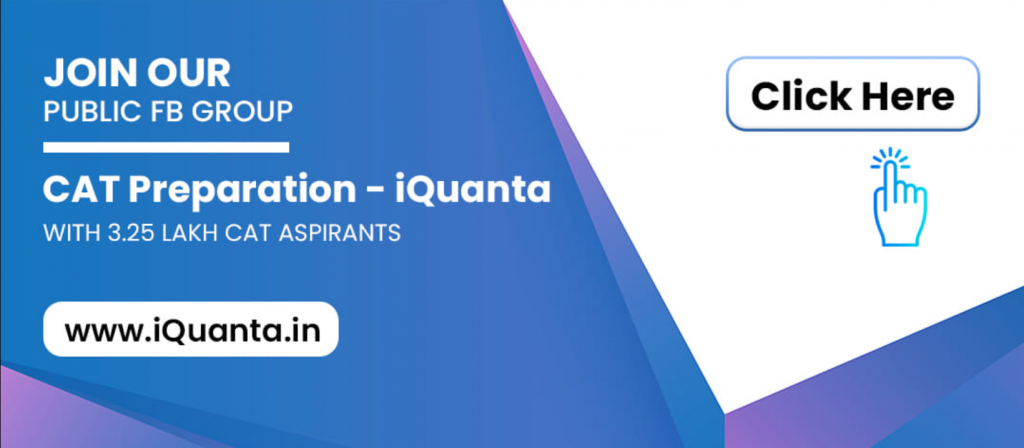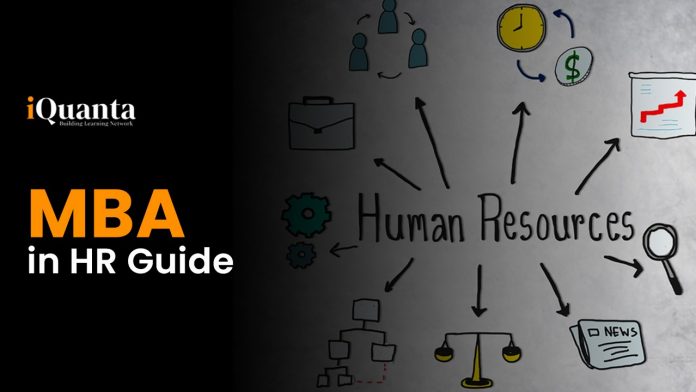Pursuing an MBA in Human Resources offers a comprehensive management education that prepares students for leadership and managerial positions. It covers a variety of topics including recruitment, management, providing direction and guidance, understanding business operations, organizational and project management skills, leadership, teamwork, decision-making, communication skills, and more. Human Resources MBA programs are available in the form of a specialized MBA degree or as part of a general management degree.
The top 5 business schools for MBA in Human Resources are XLRI Jamshedpur, TISS Mumbai, MDI Gurgaon, IIM Ranchi, and SCMHRD Pune. These programs offer a variety of courses and electives that help students gain a comprehensive understanding of the field. For example, at XLRI, the curriculum for the strategic human resource track includes organizational design, theory, teamwork, strategic HR, corporate cultures, and more.
The graduates from the top business schools for MBA in HR are working for companies like Amazon, Accenture, KPMG, PwC, and Deloitte. The advancement in information technology coupled with the predictive analytics in HR processes is boosting growth in the HR function, and the global Human Resource Management market size is expected to grow at a CAGR of 12.8% from 2022 to 2030.
If you are interested in learning more about MBA in Human Resources and the top business schools for the same, here is an article that highlights what it entails and why to pursue an MBA in HR, with career options and salary in HR functions.
MBA in HR Eligibility
To get admission in MBA in HR in India, candidates must have either completed their bachelor’s degree from any discipline or must have earned a minimum of 50% marks in graduation. Moreover, they will also have to sit for various entrance exams such as CAT, MAT, SNAP, CMAT, group discussion and personal interview to get admission in any MBA in HR college.
Top B-Schools for MBA in HR
- XLRI Jamshedpur
- TISS Mumbai
- MDI Gurgaon
- IIM Ranchi
- SCMHRD Pune
- XaHR Bhubaneshwar
- NMIMS Mumbai
- IIT Kharagpur
- DSE Delhi
- UBS Chandigarh
MBA in HR Entrance Exams
MBA in HR entrance exams in India include CAT, XAT, GMAT, SNAP, NMAT, CMAT, and IIFT.
CAT Exam: The Common Admission Test (CAT) is the most popular of all IIM entrance exams held in India every year. It is a computer-based test that is held across 156 cities. The CAT Exam is an entry requirement for admissions into the IIMs and India’s top business schools. It is a two-hour exam that consists of three sections: Verbal Ability and Reading Comprehension (VARC), Data Interpretation and Logical Reasoning (DILR), and Quantitative Ability (QA). It has a marking scheme of +3 for each correct answer and -1 for each incorrect answer (except TITA questions). The eligibility criteria for the CAT Exam is a Bachelor’s degree with 50% aggregate (45% aggregate or equivalent for reserved categories). The CAT Exam 2022 is expected to be held on 27th November 2022.
XAT Exam: The XAT (Xavier Aptitude Test) is a national level entrance exam in India. The exam is conducted by the Xavier School of Management (XLRI) and is recognized as a prestigious and competitive business school entrance exam in India.
GMAT Exam: The GMAT (Graduate Management Admission Test) is a standardized test that is used by many business schools around the world to assess candidates for their MBA and other graduate business programs. The exam is administered by the Graduate Management Admission Council (GMAC) and is widely recognized as a prestigious and competitive business school entrance exam.
SNAP Exam: Symbiosis National Aptitude Test (SNAP) is the mandatory entrance exam for MBA admission 2023 in Symbiosis institutes. Conducted on an annual basis by Symbiosis International University (SIU), Pune, SNAP is a computer-based online exam of 60 minutes duration with a total of 60 questions. It has three sections: General English, LR, and Quants & DI. There is a negative marking of 25% for each wrong answer. The score and percentile of the SNAP exam are used for MBA admission 2023 by all the SNAP scores accepting Symbiosis MBA colleges including SIBM Pune, SCMHRD Pune, among others.
NMAT Exam: The exam is conducted by the Graduate Management Admission Council (GMAC) and is recognized as a prestigious and competitive business school entrance exam in India.
CMAT Exam: The Common Management Admission Test (CMAT) is a national level entrance exam in India that is used by many business schools to assess candidates for their MBA and other management programs. The exam is conducted by the National Testing Agency (NTA) and is recognized as a prestigious and competitive business school entrance exam in India.
IIFT Exam: The Indian Institute of Foreign Trade (IIFT) conducts an entrance exam for admission to its flagship MBA (IB) program offered at its three campuses located at Delhi, Kolkata and Kakinada (AP). The IIFT exam is a computer based test which is conducted annually and will lead to MBA admission 2023. The exam is of 2 hours duration with a maximum marks of 300. The exam will be conducted at national level in 68 cities by the National Testing Agency (NTA). It consists of 4 subjects with questions on VARC, DILR, Quant and GK subjects.
MBA in HR Skills Required
A Master’s in Business Administration (MBA) in Human Resources (HR) is a highly sought after program as it provides an in-depth understanding of the various aspects of HR management. It is essential that HR professionals have a wide range of skills in order to excel in their job.
The scope of the MBA in HR is a very demanding profession offering several jobs with higher salary packages. An HR manager plays a crucial role in any company.
So, what are the skills required for MBA HR? Here is a detailed breakdown of the key skills and competencies needed for a successful HR professional:
Communication & Interpersonal Skills: An HR has to communicate to management, out to potential employees, and down to all levels of current employees. An HR is known for being good with people for a reason. They are constantly interacting with employees at every level of their organizations and communicate with them in a warm, clear, and professional way. Make sure you can express yourself well both verbally and in writing as you will be conducting multiple interviews, delivering presentations, and leading conflict resolutions.
Recruitment and Hiring: Hiring new employees is a costly and time-intensive process. So, HR professionals must shift their focus to workforce development, leveraging, and managing the human capital.This process requires strong decision-making skills as you’d have to pick one candidate from many others. An HR professional has to study the interview process and conduct the interview of a potential candidate and analyze their optimal skills.
Strategic Thinking & Planning Skills: The ability to think strategically and use that strategic thinking to successfully shape is what HR does. They know how to understand and analyze another person’s problems to guide them accordingly. The HR professional is a detail-oriented and meticulous planner. They have to juggle so many balls and are responsible for so many different tasks. In addition to these planning skills, be very comfortable making data-driven decisions based on metrics and analytics.
HRIS Expertise: Human Resource Information System (HRIS) simplifies HR tasks for you. HRIS solutions are according to various responsibilities, and being an HR should be familiar with them. An HRIS solution is to ensure the smooth running of the company. Being an HR, you must be familiar with payroll management software allowing businesses to manage their employees compensation from one place.
Workplace Culture Development Skills: For a successful organization, HR should effectively develop, shape, and lead workplace culture. For smooth functioning focus, on administrative skills like meeting with stakeholders, filing paperwork, answering staffs questions, etc.
Being an HR, interact with the team leader to solve the staffs problems and provide them with a productive environment.
Conflict Management and Problem Solving: Make sure that people work together at least civilly for higher productivity. HR has to find ways to allow that to happen. You cannot be effective without problem-solving ability. As an HR professional, you must be proactive about the current and emerging trends. Proactive and strategic HRM plans HR tasks in a way that offers the most value to the business.
Advising and Coaching: An HR should advise employees, line managers, and senior managers on personnel issues. Every day an HR has to deal with people’s lives and careers, and when a manager requests help with a termination or a compensation recommendation or recognition program, you should be able to advise and solve issues.
Coaching skills are helpful when it comes to one-on-one or group sessions to spread information or train people. This advice also has to be communicated.
To stay ahead in the HR field, one must equip oneself with these skills, capabilities, and qualities. Additionally, employers are also looking for certain soft and hard skills in job applicants. Soft skills include leadership, communication, critical thinking, creativity, cross-cultural competency, teamwork, flexibility, and self-awareness. Hard skills refer to some tangible or technical skills such as analytical skills, communication skills, interpersonal skills, leadership skills, positive attitude, teamwork, and technical skills.
With the help of an MBA in HR, professionals can polish their skills and capabilities and make themselves suitable for the job market. Moreover, it will also help them in gaining knowledge and insight into the domain of HR, which can be beneficial for their career.
Thus, possessing the right set of skills is essential for HR professionals to be successful in their careers. If you are planning to pursue an MBA in HR, make sure you have the right skills needed to excel in the field.
MBA in HR Scope
An MBA in Human Resources is a popular program amongst young professionals due to the high demand for HR professionals in both the public and private sectors. An MBA in HR is a 2-year master’s program that is pursued by individuals with a bachelor’s degree in any stream. It is also a good career option for those who are good at communication, interpersonal skills, and the ability to envision a larger picture for an organization.
When it comes to scope after MBA in HR, there is no shortage of career opportunities. HR professionals are the backbone of an organization and are in high demand for their skills in both the public and private sectors. An MBA in HR can open several doors such as a HR Director, Chief Human Resource Officer, HR Manager, HR Generalist, HR Executive, HR Administrator, Staffing Manager, and Human Resources Safety Manager amongst other roles.
In terms of skill set, MBA in HR requires an individual to possess excellent communication skills, be able to plan and execute a program, have the ability to supervise subordinates, make decisions in critical situations, and lead people.
In addition to the job roles, HR professionals also have the opportunity to teach or conduct research in the field. There are also many programs such as a HR Database Management System Course which can help enhance a career in human resource management.
Overall, an MBA in HR is a great field to enter and the scope of work is ever expanding. With the right skill set and the desire to learn, the possibilities are endless.
If you are looking for a structured plan to prepare for CAT 2023, visit or click on the link: www.iQuanta.in
You can also join our Public CAT group to engage with other aspirants, 24*7 doubts solving, and counselling support! Click on the banner below:


